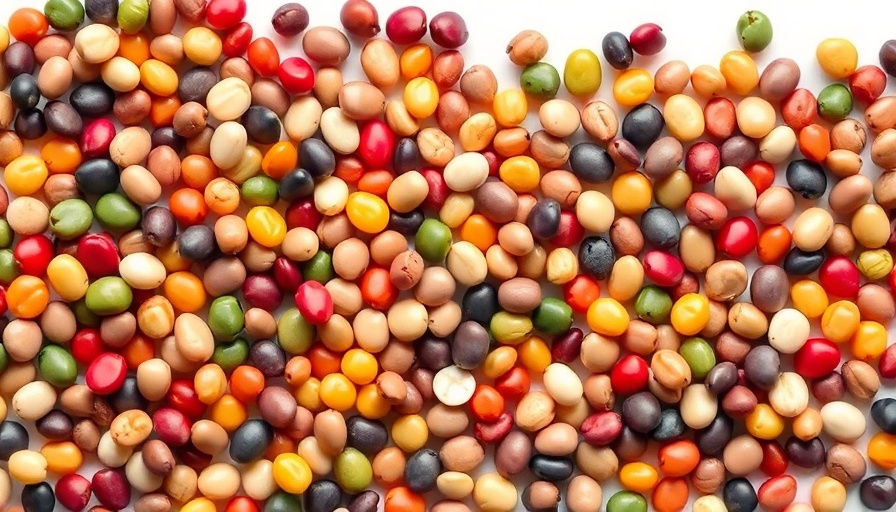
The Superpower of Beans: A Drought-Resistant Solution for Climate Change
Beans have long been a staple in numerous cultures and diets around the world, but recent research highlights their potential as a superfood not only for nutrition but also for sustainability in agriculture, particularly in the face of climate change. Researchers from Universidad Politécnica del Litoral (ESPOL) are paving the way for genetically improved bean varieties that withstand water scarcity, which is crucial for sustainable farming practices.
Why Are Beans So Important?
Common beans (Phaseolus vulgaris), despite their modest appearance, are a nutritional powerhouse packed with protein, fiber, and essential minerals. This makes them a critical component of food security for communities, especially in low-income regions.
Climate Change: A Growing Threat to Bean Production
As climate change escalates, the agricultural sector faces significant challenges due to increased frequency and intensity of droughts. Drought conditions severely threaten bean growth and yield, raising concerns about food supply and economics. During prolonged dry periods, identifying proteins involved in drought resistance helps scientists formulate genetic improvement strategies to ensure bean cultivars can thrive despite adverse conditions.
Breakthroughs in Drought-Resistant Bean Varieties
Researchers at ESPOL have identified over a hundred key proteins that contribute to drought adaptation in beans. Among these, LEA14 and PCC13-62 play vital roles in helping plants retain water and maintain cellular integrity during stressful conditions. The INIAP_473 variety has emerged as particularly resilient, potentially providing a blueprint for developing future crops that are better adapted to climate variability.
Global Applications and Local Relevance
The implications of developing drought-tolerant beans extend far beyond Ecuador. Regions around the globe, particularly those experiencing reduced water availability, can benefit from these innovations in crop resilience. For instance, studies in Central Afghanistan further investigate drought-tolerant varieties of common beans that enrich agricultural practices in arid climates.
Life with Beans: A Look at Sustainability
In addition to providing nourishment, beans can significantly reduce reliance on excessive irrigation, making agriculture more sustainable. As populations continue to grow and climate change progresses, promoting the cultivation of drought-resistant crops can contribute to food security and environmental preservation. Varieties like tepary beans have shown remarkable heat and drought tolerance, making them viable options for future sustainable farming practices.
What’s Next?
With increasing temperatures and water scarcity predicted in many areas, cultivating resilient crops like the genetically improved beans described here will play an essential role in crafting sustainable agricultural strategies. As consumers, supporting these initiatives not only benefits the environment but also enhances nutrition and food security.
This is a critical moment for agriculture, as researchers and farmers alike must adapt to changing conditions. Investing in resilient crops like beans represents a powerful step toward a more secure food future.
 Add Row
Add Row  Add
Add 




Write A Comment